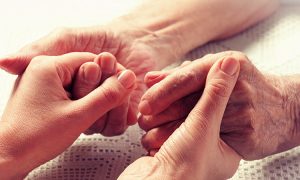Shakyamuni Buddha taught the Eightfold Path as a guide to living in the world without creating further harm and instead contributing to alleviation of personal and collective suffering. These eight “right” modes of ethical conduct, meditation, and wisdom are based on universal love and compassion for all living beings. Among them, “right livelihood” summarizes the Buddha’s teaching to abstain from making a living by trades which bring harm to living beings, and extolled the benefits of professions which are wholesome, noble, and beneficial.
Contentious debates and painful tragedies in our country and around the globe weigh heavily on our hearts and minds. Yet, Buddhadharma teaches us that we can create change, help others in their times of need, and nourish sustainable resilience, for ourselves and for the futures of our children, species of the earth, and global citizens. At Maitripa College, “make your practice your life,” includes, in practical terms, how we create right livelihoods. Many of our graduates have done so through professional chaplaincy, meeting people where they are suffering, with skillfulness and compassion.
Whether you are considering a new career, bringing spiritual care more palpably into your existing profession, or curious about what “Chaplains” are, what they do, and where they work, we invite you to learn more through the links on this site and contact us to talk about your aspirations.

What is
a chaplain?
- Chaplains serve the spiritual needs of others, regardless of their faith, culture, or backgrounds.
- Chaplains are rooted in their own spiritual and religious traditions, and therefore are able to powerfully and compassionately provide presence and accompaniment to others, including supporting the life-affirming practices, beliefs, and rituals that strengthen them.

How does one
become a chaplain?
- Maitripa College offers a Master of Divinity, the degree which most commonly fulfills the graduate education criteria for professional chaplaincy.
- The paths to Professional Chaplaincy also includes clinical training and endorsement.
- Chaplaincy training at Maitripa College starts with cultivating one’s own inner resources and bodies of knowledge, and proceeds to putting this into practice in the classroom, in our learning community, and then beyond.

Where do
chaplains work?
- Chaplains work in numerous sectors in which people face suffering: healthcare, hospice, corporate, campus, prison, disaster and crisis response, social justice movements, and more.
- Chaplaincy employment opportunities are expected to increase with the rising visibility and research-backed appreciation of their work in recent years, and US demographic changes.


